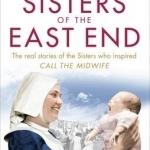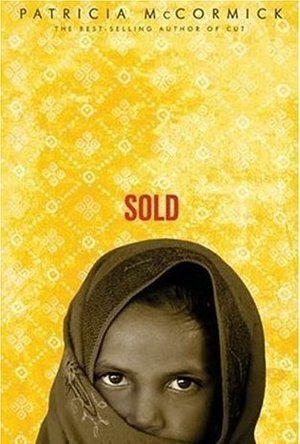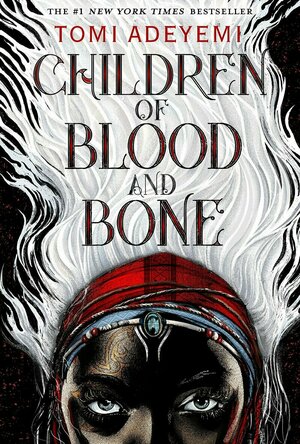
Sisters of the East End: A 1950s Nurse and Midwife
Book
Heart-warming tales of nursing and midwifery from the Sisters who worked with Jennifer Worth. "A...

Economics
Daron Acemoglu, David Laibson and John List
Book
For courses in Principles of Economics Acemoglu, Laibson, List: An evidence-based approach to...

Moon Iceland
Book
Explore Your World Your Way with Moon travel guides! In Iceland, fire and ice meet at the top of the...

Turning Tyrants into Tools in Health Practice: The Integrated Practitioner: Book 3
Book
'In order to provide integrated healthcare, we need to integrate a huge number of...entities. Each...

Sold
Book
Taken from Goodreads: Although Lakshmi's family is desperately poor her life still contains simple...
LeftSideCut (3776 KP) rated The Falcon and the Winter Soldier in TV
Apr 24, 2021 (Updated Jul 16, 2021)
The narrative mainly focuses on the two titular Avengers taking on a revolutionary group, hell bent on returning to a post snap world. It deals head first with the fallout of Thanos' devastating blow in Infinity War, and the subsequent return of the 3.5 billion people who re-materialised after Endgame, and the issues that came with them. It's good to see that Marvel Studios aren't avoiding these complicated plot points that could have potentially just been swept under the rug.
The series also develops the John Walker/U.S. Agent comic story. Its well realised and Wyatt Russell is fantastic in the role. Daniel Brühl returns as Baron Zemo after an underwhelming narrative in Civil War, and unexpectedly is plain hilarious (and finally in full costume, even if it is for one scene).
As well as all this, fans of the comics are treated to a plethora of potential future stories - The introduction of Madripoor marks the first proper acknowledgement of X-Men material. Lesser known comic characters such as Isiah Bradley, Madame Hydra, Battlestar, Batroc, and Ayo are given screentime. There's even some carrots dangled for a potential Young Avengers adaption with the appearance of Eli Bradley/Patriot (and with Kate Bishop incoming, surely this is a thing)
Perhaps most importantly, TFATWS doesn't shy away from tackling race issues, touching upon real world events, and developing them into the plot. This spills over into the future of Captain America, and what the shield represents to the black community. There are some truly powerful moments of dialogue, especially between Isiah and Sam. It's all handled respectfully, and brings new depth the MCU, as they stride into a more diverse future.
With this series, and the preceding WandaVision, this new phase for the MCU is off to an incredibly strong start, and I'm so excited to see where they take it. Between Falcon rightfully taking the reigns as Captain America, the upcoming Shang Chi movie finally adapting the martial arts corner of Marvel for the MCU, and the tantalising promise of the multiverse, it's a good time to be a Marvel fan.
Tom Chaplin recommended OK Computer by Radiohead in Music (curated)
Gaspar Noe recommended An Andalusian Dog (1929) in Movies (curated)
Cristy Amanda (87 KP) rated Children of Blood and Bone: Book 1 in Books
Sep 28, 2019
This book was totally captivating and eclipsing! Within the first 5 pages I was hooked and could not put it down. Not consciously hooked straight away as I sometimes am, but in the sense of I literally couldn't make myself stop reading yet didn't know why. Within a day and a half I had finished and was thoroughly torn up to discover I couldn't even get the sequel yet. (So I now have to make do with re-reading it almost continuously which is no hardship!)
The clever descriptive writing soon sucks you into the world of the storyline and convinces you it is not only plausible but very real. The charactors felt as though they were my very own family and I was totally invested in their futures.
Whilst the reason for the book being written is heartwrenching in itself, the story line is so cleverly written to portray the social issues and paradigms of the modern world in an intelligent yet disconnected way. I have never felt such an emotional rollercoaster as I did reading this book. Each time it looked as though they would succeed in restoring magic, my own heart soared with hope. And each time the plans didn't pan out, I personally felt like a candle in the night had been extinguished. The social caste differences and brutal violence were traumatic in their own right, yet to illustrate the point with the demise of some charactors who were pivotal to the aim of the protagonists, really drove home the risks, suffering and sacrifices of the charactors in the story, as well as further illustrate the point of the novel. The ending was totally unexpected and soul-destroying and I am somehow both excited and apprehensive to read the next book upon its release. I don't think any amount of time can prepare me for the adreneline building heartwrenching rollercoaster still to come. I 100% recommend this novel to everyone and commend such an inspirational, thought provoking and clever interpretation and translation of modern day societal issues into fantasy fiction.
Becs (244 KP) rated Ready Player One in Books
Oct 2, 2019
Audience: Young Adult
Reading level: High School +
Interests: science fiction, fantasy, video games, 80’s
Style: Sci-Fi
Point of view: First person.
Difficulty reading: It started off great and I flew through the first half of the book. It’s towards the 55%-75% mark that was a bore for me. But the ending was great!
Promise: Dystopian Sci-Fi video game world
Quality: Minus the 20% that was pretty darn boring and long, the book as a whole was a great read.
Insights: I’m not a huge gaming geek, so without Cline explaining half the time what these gaming terms are, I’d be as lost as a pig in a supermarket. For that, I thank him. It was nice seeing a Dystopian world set in the future that was still in our lifetime. I have never read anything like that – cool to see how Cline wrote it.
Ah-Ha Moment: SPOILERS AHEAD!
Okay, I knew Aech was hiding something. But I could not figure out what it was for the life of me. But when Aech and Parzival first met, in real life, face to face, I WAS NOT EXPECTING him to actually be a ‘her’.
This was me:
Favorite Quotes: “Going outside is highly overrated.” – Yea, I feel ya too. I just want to stay in and read all day every day. Who needs a job, who needs to eat, all we need are books. Am I right?
“You’d be amazed how much research you can get done when you have no life whatsoever.” – I mean, you’re not wrong.
“One person can keep a secret, but not two.” – Secrets, secrets are no fun. Secrets, secrets hurt someone.
Aesthetics: The whole book is an 80’s aesthetic that I love. Plus, it gives a brief inside scoop on the whole “if we don’t care for the planet now, there will be nothing in the future” debate. Which is true, we should care for the planet more than what we do now. I mean we only live on Earth just as much as everybody else. The copy of Ready Player One that I have, is a 2015 Special Edition copy – I love the cover on it.
“People are more than just the way they look.”




